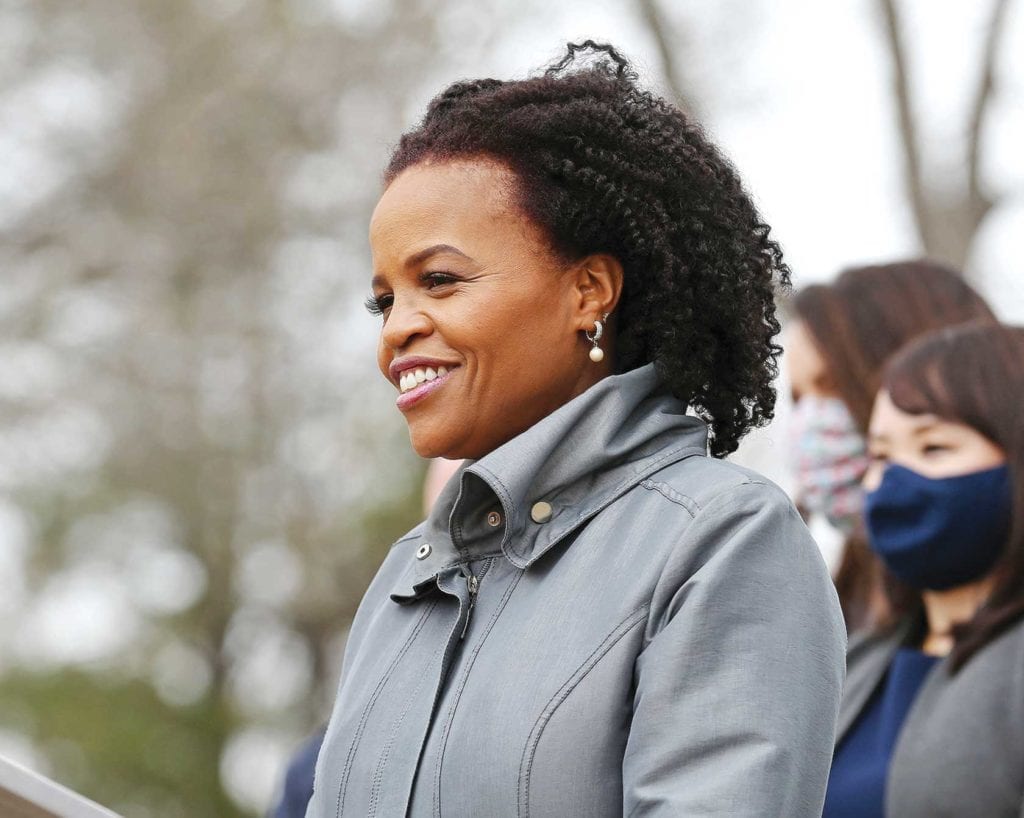
After former Boston police officer Patrick Rose was accused of multiple counts of sexual assault, Boston elected officials immediately began calling on acting Mayor Kim Janey to release all records related to the case.
Rose is accused of sexually assaulting and raping a young relative from the time she was 7 years old until she was 12. He spent more than two decades on the force at BPD and served as president of the Boston Police Patrolmen’s Association, and now both the department and the union are under scrutiny. He first faced child abuse allegations in the 1990s but stayed on the force despite a thorough investigation.
“To restore trust and do away with this coverup culture, BPD must release the records from the Rose investigation,” City Councilor and mayoral candidate Andrea Campbell said in a statement on Monday. “I sincerely hope that Acting Mayor Janey will reverse the previous administrations’ refusal to release these records.”
Later that day, Janey announced that she has instructed the city’s Law Department to review and release Rose’s internal affairs file.
“I have asked that the review and redaction happen as quickly as possible so that the file can be released to the public,” she said in a statement.
The internal affairs file would contain any internal investigations into his previous conduct. This includes files from the BPD’s 1995 investigation into a separate sexual assault complaint involving a different minor. According to the Boston Globe, a BPD internal affairs investigation found evidence that Rose assaulted a 12-year-old. Even though that young boy recanted his story, an internal affairs investigation continued and found that Rose had broken the law.
Rose went on to be an officer for 21 more years.
“It is baffling that officer Rose was allowed to remain on the force for over two decades and ultimately led the patrolmen’s union. I was deeply disturbed to learn that there was no effort to prevent Rose from coming into contact with other minors after such serious charges were found to be credible by BPD’s own internal affairs probe of the original allegations in 1995,” Janey said.
Another city councilor and mayoral candidate, Michelle Wu, took a swing at Janey before the acting mayor called for a release of the records on Rose.
“This [is] a horrific breach of public trust, and it continues to this day with the administration’s refusal to release internal affairs records,” Wu said in a statement.
The council also released a joint statement highlighting concerns about a possible cover-up of Rose’s sexual misconduct and concerns around abuse of overtime, protections like qualified immunity, and the pressure for police reforms mounting at the state and municipal level.
District 8 Councilor Kenzie Bok’s thread on Twitter explains the details of police contracts between the city of Boston and the Police Patrolmen’s Association that Rose was once president of — they give Boston’s police officers unprecedented power compared to other civil servants and outline what kind of discipline should be used when a grievance occurs.
Bok argues that “egregious” cases like Rose’s should be in the hands of the police commissioner. As the city continues to develop its Internal Affairs Oversight Panel and Civilian Review Board to hold the police accountable, issues like Rose’s case will come under more scrutiny.
“Police contracts MUST reflect the key public interest in ensuring such power is not abused. So long as arbitrators can restore fired officers, Civilian Review Board & IAOP can’t achieve their intended reform,” Bok wrote.






